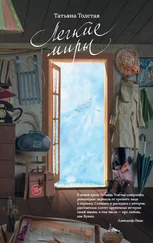The post office branch was on Kronverksky Avenue. They were happy to have me—not many people wanted to work there in the summer, the pay being poor and the weather sublime. The boss—a woman inflamed with governmental concerns and the weight of financial responsibility—broke down the effortful job of the telegram delivery person.
There is route number one, to the left, and route number two, to the right. The postman comes to the post office branch, picks up the newly arrived telegrams, and walks first this way and then that way, in turn. Officially, the telegrams are sealed, but the postman will definitely peek inside—there is no privacy in correspondence, you can forget about that. This is because the postman is not some dumb robot but a keen psychologist.
What does psychology have to do with it, you ask? Well, for one thing, it’s summer. People are apt to drown in lakes and rivers, you see. Every month at least one telegram announcing that Nikolai drowned is sure to arrive. So just imagine: You bring said telegram and hand it over to a lovely woman who is, perhaps, brushing away a strand of hair with the back of her hand, or maybe wiping her palms on her apron—women, as we know, are forever cooking something. And there you stand, at the threshold of a communal apartment, and this woman is smiling at you as the sun floods the landing, as if shining through water, via the miraculously well preserved stained-glass windows dating back to prerevolutionary days. Nice and clean.
And if you, unaware of the contents of the telegram, should also find yourself smiling, enjoying life, commenting on the beautiful weather or other silly nonsense just as she unfolds that paper only to read “Nikolai drowned”—well, that is quite a blow, quite treacherous, really. It might even cause a heart attack.
No. One needs, whenever possible, to be eased into grief. Bad news is easier to cope with when it’s delivered by a mean person. Thus you must assume a disagreeable, vicious-looking scowl. When the door opens, you have to boorishly blurt out: “Telegram!” No smiling; look away, down at the floor. Shove the receipt toward her—“Sign here.” Once she signs, thrust the telegram into her hands and run like the wind down the stairs. Reaching the landing below, you can catch your breath by the wall, close your eyes, grit your teeth, and tilt your head back, unable to banish the image of this unsuspecting stranger’s sweet face—a face that was just happy for the last time, there, upstairs. On the shore.
Stand there. Try to forget. And back down the delivery route you go.
Contrariwise, suppose one is bearing an arrival telegram—for instance, “Arriving on 15th, train 256, car 8,” a quiet, happy bit of news—but then it’s an old granny who opens the door. That’s who stays home in the daytime for the most part, old grannies. And this granny—we are talking about the early 1970s, mind you—this old lady still remembers the war, still hasn’t quite recovered from it, and God knows how many death notices she’s held in her hands! Therefore, as soon as she sees the telegram, she starts backing away with fear in her eyes, her palms raised to push back the impending news, mumbling, “No, no, no…” To prevent this, one must, preemptively, from outside the door, assume a carelessly happy visage and right away, without crossing the threshold, wave the telegram, crooning: “Everything is okay, here is a nice and happy message for you, they are on their way, start baking those pies!” Blather like that.
The pay for a successfully delivered telegram was seven kopeks; for a failed attempt they paid three kopeks each. That is, if nobody was home, you’d write out a little slip that read “You’ve got a telegram, it’s at the post office, feel free to call,” and you’d pop that into the mailbox. That didn’t mean, however, that you wouldn’t attempt to redeliver. No, you’d duly bring it back in an hour, and again in two, but everyone would still be at work, you see, still nobody would be home…. The particulars of this profiteering scheme are clear, yes?
Therefore, the morning shift brought in more bacon. Three unsuccessful delivery attempts and one successful—that’s sixteen kopeks per telegram for you. Many made a living that way. The fixed monthly income of a salaried postman was thirty-two rubles, if memory serves. Now, if you chose to be a free agent, so to speak, it came out to about the same, a ruble a day—six of one, half dozen of the other—but it left the door open to pilfering the government budget for sixteen kopeks, and I wouldn’t cast a stone at such a pilferer. Not every thief deserves to rot in jail, as far as I’m concerned.
Another source of enrichment was other people’s grief. Wakes, specifically. One time I got lucky. I delivered a sympathy telegram: “Please accept my deepest condolences. My heart goes out to you.” The door was opened by a grieving widow; behind her, the well-to-do apartment of an intellectual. Blue wallpaper, French Empire−style furniture, portraits in oval frames. Assuming an appropriately somber countenance, I handed her the telegram. The widow signed the receipt and gave me a twenty-kopek tip.
Wowza! This was my very first tip. What a peculiar feeling! I walked out and sat down on a park bench to have a smoke and a think. This was a lot of dough. I contemplated: Are tips degrading to a human being? Nah, they are not. They bring only joy—apologies to the widow and the stiff. Your time to fade, my time to bloom. I was eighteen years old, and I fully intended to bloom. With flying magenta colors.
I finished my cigarette and walked back to the post office—another sympathy telegram. I promptly delivered it to the widow. She accepted it, but a shadow made its way across her face—a specter not of the grave but of the impending expenditure: she rewarded me with fifteen kopeks. All right, I could see where this was going. “Quit coming here begging me for handouts” was written all over her tear-stained face, though I never said a word—solemnly handing her the delivery receipt, my ballpoint pen hanging from its burlap cord, before silently disappearing into the malodorous darkness. Her apartment was on the first floor, off the back courtyard. There were radiators—ice-cold in the summer—with oakum poking out. Earth-brown walls. An empty light socket. The third telegram got me ten kopeks, and all subsequent ones—nothing. The widow simply tore the telegrams out of my hands with unadulterated hatred in her eyes and slammed the felt-padded door with a dull thud. Sayonara.
—
The courtyard system in Saint Pete is fascinating and convoluted. Apartments are numbered in unpredictable ways. In a particular building there could be apartments numbered 14, 15, 15а, 3, 78, 90, 16, 24, 18, and—on the very top floor—apartment number 1. Numbers 7 and 8 would be skipped and the entrance to apartment number 6 would be from another building. Or maybe from the alleyway. Some doors had no numbers at all, and the landings had no light, and so you’d stand there on the back staircase, the faint smell of garbage permeating the darkness, your hands probing the outer padding of the doors, while you’d try to make out the indistinct voices behind them. Or, more often than not, you’d stand in deafening silence, disoriented, as if under water. Many precious hours were wasted in trying to find the right apartment.
Toward the end of my post office days I befriended a disabled postman who’d made a little book with clear diagrams of all the front and back entrances along route one and route two—what a joy to behold! He was a full-time employee for thirty-two rubles, and he had respect for his work: he took his time, walked at a moderate pace, knew the dangerous and the friendly apartments and the one where the psycho resided—the one who would grab your hand and drag you inside his hot, balmy abode reeking of sweet cologne—knew where the twin girls lived, knew who was bedridden and who spent weeks away from home. He was a strange man, more cuckoo than a clock factory, off his trolley and out to lunch. He had only one interest: delivering telegrams.
Читать дальше






